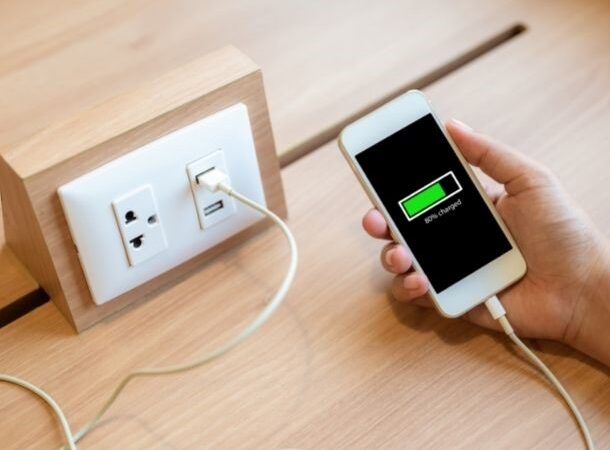Juice jacking is very dangerous when it comes to data theft. Juice jacking is what happens when attackers compromise an unpatched public charging station or internet port with malicious software.
Once inside, thieves can copy personal data like credit card numbers, names, addresses, Social Security numbers, and phone numbers.
It is extremely easy to juice jack a public facility because it involves plugging a charger into an unguarded charging station or port, and then waiting for someone else to turn off the power supply. When the power supply is turned back on, the attacker’s malware will begin working on gathering and exfiltrating data.
Public Charger Safety Tips
You might have noticed that your wireless router was powered down recently (or that it stopped being accessible), even though it hasn’t been touched. Many companies have added an additional safety feature called “JuiceJack Defense” because of the increase in public charging stations that people use today.
Unfortunately, these protections only work with certain models of wireless routers and won’t be available on all devices that come from those manufactures. You can also purchase your own Data Blocker such as this USB Data blocker.
So the next step is to check to see whether your device is a victim of juice hacking, and take steps to stop juice jacks before it gets too far.
Check to see if your modem has public access controls
Modems are considered vulnerable to juice jacking for two reasons: First, modems are often designed to automatically reboot or shut down themselves after 30 seconds or 1 minute of non-action, depending on brand. If they don’t automatically shut down, attackers know where to poke around. Second, they often have a web interface that allows them direct access, making them especially susceptible to juice jacks.
Don’t Leave Equipment Outdoors During Winter Months
Many manufacturers claim that they have addressed juice jack dangers by limiting power to the ports to avoid damage during extreme weather conditions. Unfortunately, even when they say that the ports cannot be exposed in subfreezing temperatures, people still have left equipment outdoors anyway. Even if a manufacturer isn’t saying that they can’t be exposed to freezing temperatures, it makes sense that people would simply leave the equipment outside for longer periods when bad weather is forecasted.
Use An Antivirus Appliance On All Computers
An antivirus appliance can identify juice jacks quickly before they cause physical harm. The best antivirus appliances are updated frequently, use up-to-date software libraries, and regularly scan files that move through the internal network. A good antivirus appliance will also notify you right away if its virus signature database contains a match.
To summarize this topic, make sure that all computers in your company have appropriate defenses against juice jacks so that people don’t get hurt by their own equipment. Don’t trust public charging stations – keep portable phones, tablets, and laptops locked in your car while plugged into them. Don’t ever plug electronics into a network port that isn’t secured. And finally, don’t ever leave equipment connected to a network port, even if you believe that the manufacturer says it is safe.
If you have questions or concerns about the security of your devices, please contact us at (919) 469-5060

Share:





Leave A Comment